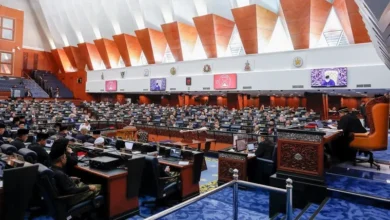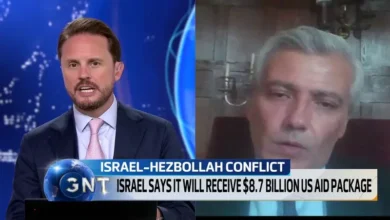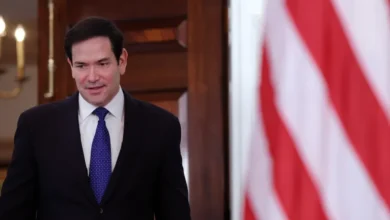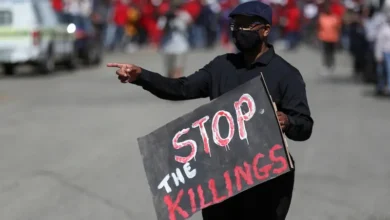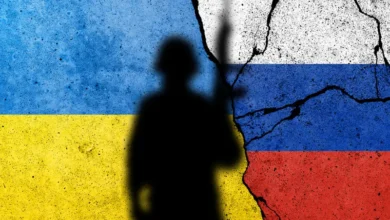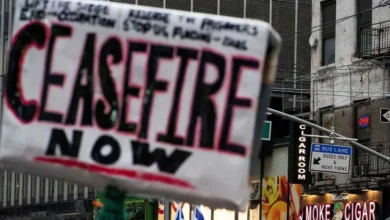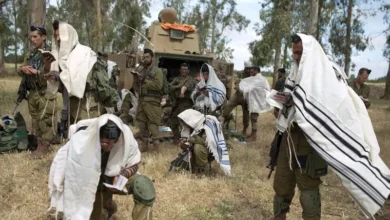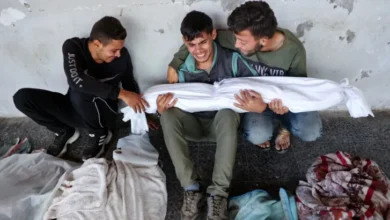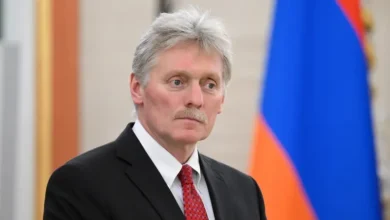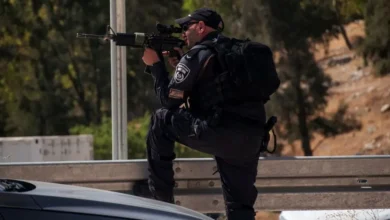Putin says any deal must lead to ‘long-term peace’
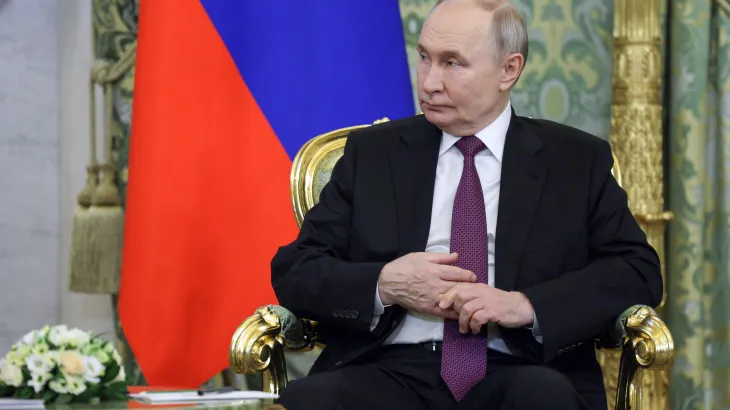
At a meeting with Belarusian President Alexander Lukashenko in Moscow, Russia’s Vladimir Putin said he agrees with US proposals to stop the fighting in Ukraine, but any ceasefire would have to deal with the root causes of the conflict.
US negotiators are in Russia to present their plan for a 30-day ceasefire in Ukraine, as Washington pushes Moscow for an “unconditional” pause to the three-year conflict.US to resume shipments of long-range weapons to Ukraine: media
The news agency Reuters reports that the US is set to send an upgraded round of ground-launched small diameter bombs (GLSDB) to Ukraine.
This comes as the eastern European country’s supply of the US-developed Army Tactical Missile Systems (ATACMS), another long-range weapons system, runs low.
The Reuters report cites two anonymous sources familiar with the matter. The GLSDBs will include upgrades meant to counter the effectiveness of Russian jamming efforts, which has reportedly hindered Ukraine’s ability to successfully hit targets.Trump ‘effusive’ about NATO support for Ukraine ceasefire effortTrump is welcoming what appears to be movement in the attempt to get a ceasefire under way.
He’s confirmed that his people are still talking to the Russian leadership. Steve Witkoff, his special representative, is still in Moscow.
So President Trump is saying that it’s looking promising. He is pleased to see the guarded reaction from Vladimir Putin, but he is saying it’s got to get done quickly: “This is taking too long. We’ve got to get it done, and we’ve got to get a permanent peace.”
And he was very effusive about the role that NATO has played in it and the support that NATO has given in the person of Mark Rutte.
So there is a clear warming of the relationship between Rutte and Trump, it would appear.
But that was just one of the subjects that he spoke about in a sometimes rambling, sometimes almost un-understandable stream of consciousness exposition.Russian officials head to Beijing to engage in nuclear talks
On Friday, Russian officials will join representatives from China and Iran in Beijing to discuss a proposed deal on Tehran’s nuclear weapon programme.
The US has hoped to prevent Iran from acquiring nuclear weapons, though US President Trump previously pulled the country out of a 2015 agreement that would see Iran scale down its nuclear ambitions in exchange for sanctions relief.
Trump commented on the upcoming nuclear negotiations in the Oval Office today.
“Maybe they’re gonna talk about non-nuclear programmes. Maybe they’re gonna be talking about the de-escalation of nuclear weapons because I was talking about that with President Putin very strongly,” he said.
Trump emphasised his good relations with Putin throughout his Oval Office appearance.
“ I got along very well with President Putin. I got along with most of them. I get along great with President Xi. I got along great with Kim Jong-Un,” Trump said, referring to the Russian presidents alongside leaders from China and North Korea. “I got along great with all of them.”Zelenskyy slams Putin for ‘manipulative’ ceasefire statement
The Ukrainian leader says that Putin is expressing support for a ceasefire while putting conditions in place to ensure one does not move forward.
“We now have all heard from Russia Putin’s very predictable, very manipulative words in response to the idea of a ceasefire,” Zelenskyy said in his nightly address.Ukrainian official says will ‘never agree’ to frozen conflict
Ukrainian presidential Chief of Staff Andriy Yermak says his country will not accept a “frozen conflict” with Russia — where fighting largely ceases but the underlying questions are never fully resolved and skirmishes sometimes breaks out.
“We said very clearly that we will never agree to a frozen conflict,” Yermak said during a television interview.
“The main thing is that Ukraine is not alone. Ukraine is with its partners,” he added. “We agreed with our American partners that representatives of Europe will definitely take part in the peace process.”‘ You’re sort of creating the edge of a country’: Trump
In his Oval Office appearance today, Trump has repeatedly said he and his advisers have been discussing “ concepts of land” in relation to a peace deal between Ukraine and Russia.
Trump implied the negotiations would redraw the international boundary between the two countries, though he did not offer specifics.
“ It’s complicated,” Trump said. “You’re sort of creating the edge of a country.”
“The sad part is that country, if this didn’t happen — and it wouldn’t have happened — I don’t know if they would have to give anything back,” he added, seeming to refer to Russia.
Trump went on to express optimism that Russia would compromise in the name of peace.
“I hope Russia’s going to make the deal too. And I think once that deal happens, you’re never gonna be in a process — I don’t think they’re going back to shooting again,” he said.
“I don’t think anyone wants to go back. They’ve been doing this for a long time, and it’s vicious and violent.”
The US president also dismissed concerns from other European countries that Russia could also pursue aggressive actions against them.
“I think, when this gets done, it’s done. They’re going to all want to go home and rest. I don’t see it happening. Nope, I don’t see that happening. And we’ll make sure it doesn’t happen.”
Why the focus on icebreaker vessels?
During Trump’s Oval Office meeting with NATO Secretary-General Mark Rutte, the conversation repeatedly returned to the subject of icebreakers.
The term refers to ships specially designed to carve a path through the Arctic ice, allowing travel through the region all year round.
Even with climate change melting polar icecaps, conditions in the Arctic can be perilous for seafaring vessels, which can be otherwise trapped by the ice.
The US has long maintained it needs icebreaker vessels to ensure its interests in the Arctic, both in terms of minerals, oil and national security.
Trump said at today’s meeting he would add 58 icebreakers to the US fleet.
“Russia, as you know, has about 40 of them, and we have one big icebreaker. But that whole area is becoming very important for a lot of reasons,” he said, pointing to Arctic trade routes.
“The routes are very direct to Asia, to Russia, and you have ships all over the place, and we have to have protection. So we’re gonna have to make a deal on that.”
He then used the question of icebreakers to reaffirm his intention to annex Greenland, an autonomous territory under Denmark.
“Denmark is not able to do that. You know, Denmark’s very far away and really has nothing to do,” he said.
He also added that, if Canada wanted to benefit from US icebreakers, it too would have to cede its sovereignty.
